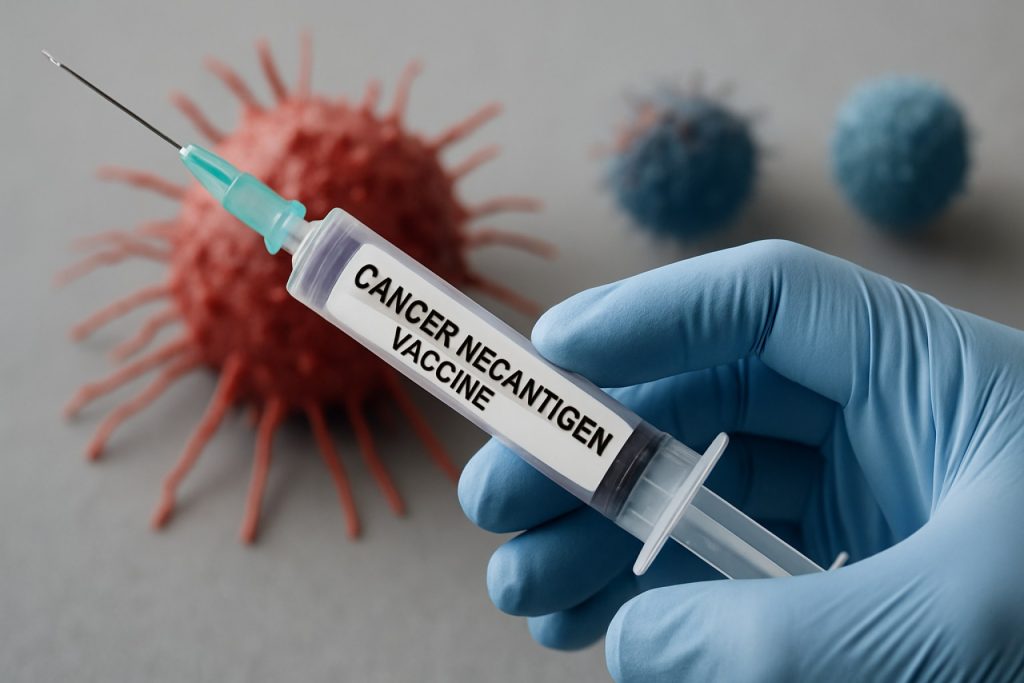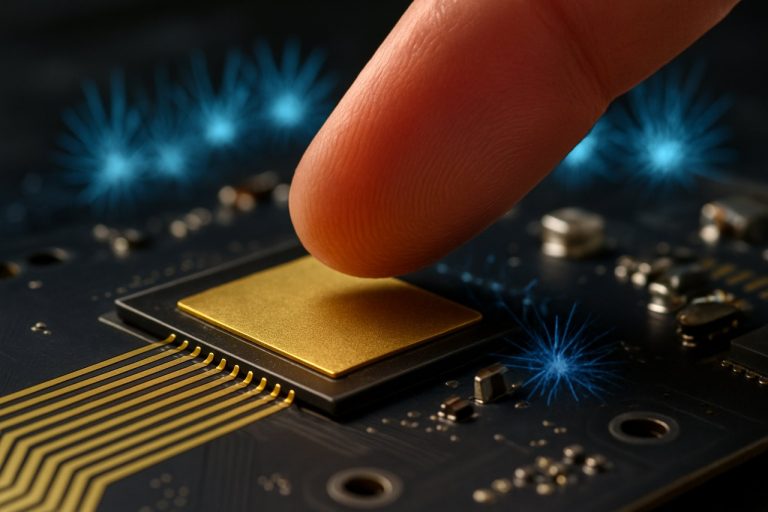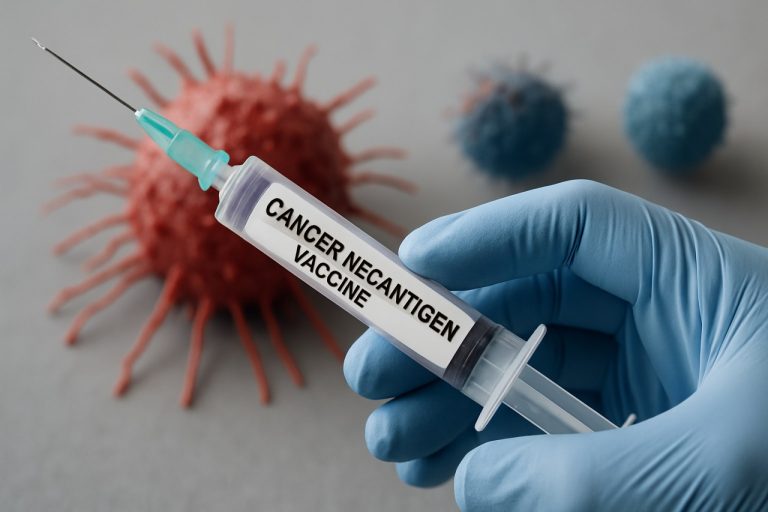
Unlocking the Power of Cancer Neoantigen Vaccines: How Personalized Immunization is Transforming Oncology. Discover the Science, Breakthroughs, and Future Impact of Tailored Cancer Treatments.
- Introduction to Cancer Neoantigen Vaccines
- The Science Behind Neoantigens: What Makes Them Unique?
- Personalization: Designing Vaccines for Individual Tumor Profiles
- Clinical Trials and Current Evidence
- Technological Advances in Neoantigen Identification
- Challenges and Limitations in Neoantigen Vaccine Development
- Comparing Neoantigen Vaccines to Other Cancer Immunotherapies
- Regulatory and Ethical Considerations
- Future Directions and Emerging Research
- Conclusion: The Promise and Potential of Neoantigen Vaccines in Cancer Care
- Sources & References
Introduction to Cancer Neoantigen Vaccines
Cancer neoantigen vaccines represent a cutting-edge approach in the field of cancer immunotherapy, aiming to harness the body’s immune system to specifically target and eliminate tumor cells. Unlike traditional cancer vaccines, which often target shared tumor-associated antigens, neoantigen vaccines are designed to target unique, patient-specific antigens that arise from somatic mutations within tumor cells. These neoantigens are not present in normal tissues, reducing the risk of autoimmunity and increasing the specificity of the immune response National Cancer Institute.
The development of cancer neoantigen vaccines involves several key steps: sequencing the patient’s tumor DNA to identify mutations, predicting which mutated peptides are likely to be presented on the tumor cell surface by major histocompatibility complex (MHC) molecules, and formulating a vaccine that can stimulate T cells to recognize and attack cells displaying these neoantigens. This personalized approach has been made feasible by advances in next-generation sequencing and bioinformatics, allowing for rapid identification and selection of immunogenic neoantigens National Cancer Institute.
Early-phase clinical trials have demonstrated the safety and immunogenicity of neoantigen vaccines in various cancer types, including melanoma and glioblastoma, with some evidence of clinical benefit. However, challenges remain, such as optimizing neoantigen selection, improving vaccine delivery platforms, and overcoming tumor immune evasion mechanisms. Ongoing research continues to refine these vaccines, with the goal of integrating them into standard cancer treatment regimens and expanding their applicability across diverse tumor types Cancer Research UK.
The Science Behind Neoantigens: What Makes Them Unique?
Neoantigens are a distinct class of tumor-specific antigens that arise from somatic mutations unique to an individual’s cancer cells. Unlike self-antigens, which are present in both healthy and malignant tissues, neoantigens are generated by non-synonymous mutations in tumor DNA, resulting in novel peptide sequences not found in normal human proteins. This exclusivity makes neoantigens highly immunogenic, as the immune system has not developed tolerance to these new epitopes, allowing for a more robust and targeted T-cell response against cancer cells while sparing healthy tissue. The identification of neoantigens typically involves next-generation sequencing of tumor and normal DNA, followed by bioinformatic prediction of which mutated peptides are likely to be presented on the patient’s major histocompatibility complex (MHC) molecules and recognized by T cells.
The uniqueness of neoantigens lies in their patient-specific nature, which enables the development of personalized cancer vaccines tailored to the mutational landscape of an individual’s tumor. This approach contrasts with traditional cancer vaccines that target shared tumor-associated antigens, which may be less immunogenic and more prone to immune tolerance. Furthermore, because neoantigens are not present in normal tissues, the risk of inducing autoimmunity is minimized. Recent clinical studies have demonstrated that neoantigen-based vaccines can elicit strong, polyclonal T-cell responses and, in some cases, lead to tumor regression or prolonged disease control in patients with melanoma and other cancers (National Cancer Institute; The New England Journal of Medicine). These findings underscore the promise of neoantigen vaccines as a transformative strategy in cancer immunotherapy.
Personalization: Designing Vaccines for Individual Tumor Profiles
Personalization is a cornerstone of cancer neoantigen vaccine development, as these vaccines are designed to target tumor-specific mutations unique to each patient. The process begins with comprehensive genomic sequencing of a patient’s tumor and normal tissue to identify somatic mutations that give rise to neoantigens—novel peptides presented on the tumor cell surface by major histocompatibility complex (MHC) molecules. Advanced bioinformatics pipelines are then employed to predict which of these neoantigens are most likely to be immunogenic, based on factors such as MHC binding affinity and expression levels within the tumor National Cancer Institute.
Once candidate neoantigens are selected, personalized vaccines are manufactured using various platforms, including synthetic long peptides, RNA, DNA, or dendritic cell-based formulations. This individualized approach aims to elicit a robust T-cell response specifically against the patient’s tumor, minimizing off-target effects and reducing the risk of autoimmunity. The entire workflow—from sequencing to vaccine production—can now be completed within weeks, enabling timely integration with other therapies such as immune checkpoint inhibitors Nature Medicine.
Despite the promise of personalized neoantigen vaccines, challenges remain, including the accurate prediction of immunogenic neoantigens and the logistical complexity of rapid, patient-specific manufacturing. Ongoing clinical trials are evaluating the efficacy and safety of these vaccines, with early results demonstrating the feasibility and immunogenicity of this highly tailored therapeutic strategy Cancer Research UK.
Clinical Trials and Current Evidence
Clinical trials investigating cancer neoantigen vaccines have rapidly expanded in recent years, reflecting growing optimism about their therapeutic potential. Early-phase studies have demonstrated that personalized neoantigen vaccines, designed based on the unique mutational landscape of an individual’s tumor, can elicit robust, tumor-specific T cell responses in patients with melanoma, glioblastoma, and other solid tumors. For example, a landmark phase I trial in melanoma patients showed that neoantigen vaccines were safe, well-tolerated, and capable of inducing both CD4+ and CD8+ T cell responses, with some patients experiencing durable clinical benefit The New England Journal of Medicine. Similar findings have been reported in glioblastoma, where neoantigen vaccination led to the expansion of neoantigen-specific T cells and evidence of immune infiltration into tumors Nature.
Ongoing phase II and III trials are now evaluating the efficacy of neoantigen vaccines in larger patient cohorts and in combination with immune checkpoint inhibitors. Preliminary results suggest that combining neoantigen vaccines with agents such as anti-PD-1 antibodies may enhance antitumor immunity and improve clinical outcomes U.S. National Library of Medicine. However, challenges remain, including the time and cost required for individualized vaccine production, and the need to optimize antigen selection and delivery platforms. Despite these hurdles, the accumulating clinical evidence supports the feasibility and immunogenicity of cancer neoantigen vaccines, paving the way for their integration into future cancer immunotherapy regimens.
Technological Advances in Neoantigen Identification
Recent technological advances have significantly enhanced the identification of neoantigens, which are critical for the development of personalized cancer neoantigen vaccines. High-throughput next-generation sequencing (NGS) technologies now enable comprehensive profiling of tumor exomes and transcriptomes, allowing for the rapid detection of somatic mutations unique to individual tumors. These data are integrated with advanced bioinformatics pipelines that predict which mutated peptides are likely to be processed and presented by the patient’s major histocompatibility complex (MHC) molecules, a crucial step for effective T-cell recognition. Machine learning algorithms have further improved the accuracy of neoantigen prediction by incorporating variables such as peptide-MHC binding affinity, antigen processing, and immunogenicity potential National Cancer Institute.
Mass spectrometry-based immunopeptidomics has emerged as a complementary approach, enabling direct identification of naturally presented neoantigens on tumor cell surfaces. This technique validates computational predictions and uncovers neoantigens that may be missed by in silico methods alone Nature Reviews Cancer. Additionally, single-cell sequencing technologies provide insights into tumor heterogeneity and the clonal distribution of neoantigens, informing vaccine design to target the most relevant tumor subpopulations Cell. Collectively, these technological advances are accelerating the discovery and prioritization of neoantigens, paving the way for more effective and individualized cancer vaccines.
Challenges and Limitations in Neoantigen Vaccine Development
Despite the promise of cancer neoantigen vaccines in eliciting highly specific anti-tumor immune responses, several challenges and limitations hinder their widespread clinical application. One major obstacle is the accurate identification and prioritization of immunogenic neoantigens. Current computational algorithms for predicting which tumor-specific mutations will generate effective T cell epitopes remain imperfect, often resulting in false positives or overlooking potent neoantigens National Cancer Institute. Additionally, the heterogeneity of tumor mutations both within and between patients complicates the design of broadly applicable vaccines, necessitating a highly personalized approach that can be time-consuming and costly Nature Reviews Cancer.
Manufacturing and logistical hurdles also present significant barriers. The process of sequencing tumor DNA, identifying candidate neoantigens, and producing individualized vaccines must be completed rapidly to ensure timely treatment, especially for patients with aggressive cancers. Regulatory and quality control requirements further add to the complexity of vaccine production U.S. Food and Drug Administration. Moreover, the immunosuppressive tumor microenvironment can limit the effectiveness of neoantigen vaccines, as tumors may evade immune detection or suppress T cell activity.
Finally, clinical evidence for the efficacy of neoantigen vaccines is still emerging, with most studies to date being early-phase trials involving small patient cohorts. Larger, randomized studies are needed to establish their therapeutic benefit and to optimize vaccine design, delivery, and combination strategies with other immunotherapies Cancer Research UK.
Comparing Neoantigen Vaccines to Other Cancer Immunotherapies
Cancer neoantigen vaccines represent a personalized immunotherapeutic approach that distinguishes itself from other cancer immunotherapies through its specificity and adaptability. Unlike traditional cancer vaccines, which often target shared tumor-associated antigens, neoantigen vaccines are designed based on unique, patient-specific mutations found exclusively in tumor cells. This high degree of personalization reduces the risk of off-target effects and immune tolerance, potentially leading to more robust and durable anti-tumor responses National Cancer Institute.
In comparison to immune checkpoint inhibitors, which release the brakes on existing anti-tumor T cells, neoantigen vaccines actively prime and expand new T cell populations specifically directed against tumor-specific mutations. While checkpoint inhibitors have shown remarkable efficacy in some cancers, their benefits are often limited to patients with pre-existing anti-tumor immunity and can be associated with significant immune-related adverse events U.S. Food & Drug Administration. Neoantigen vaccines, by contrast, may offer a more targeted immune activation with a potentially lower risk of systemic autoimmunity.
Adoptive cell therapies, such as CAR-T cells, also provide personalized treatment but require complex ex vivo manipulation and expansion of patient T cells, which can be logistically challenging and costly. Neoantigen vaccines, particularly those based on mRNA or peptide platforms, can be manufactured more rapidly and scaled more efficiently, making them a promising complement or alternative to existing immunotherapies Nature Reviews Cancer.
Regulatory and Ethical Considerations
The development and clinical implementation of cancer neoantigen vaccines present unique regulatory and ethical challenges. Unlike conventional vaccines, neoantigen vaccines are highly personalized, as they are designed based on the unique mutational landscape of an individual patient’s tumor. This personalization complicates regulatory oversight, as each vaccine may be considered a distinct investigational product. Regulatory agencies such as the U.S. Food and Drug Administration and the European Medicines Agency have begun to adapt their frameworks to accommodate these individualized therapies, focusing on streamlined investigational new drug (IND) applications and adaptive trial designs to facilitate timely patient access while ensuring safety and efficacy.
Ethically, the use of neoantigen vaccines raises questions about equitable access, informed consent, and data privacy. The complex and resource-intensive nature of vaccine design and manufacturing may limit availability to patients in well-resourced healthcare systems, potentially exacerbating disparities in cancer care. Informed consent processes must address the experimental nature of these therapies, the uncertainties regarding efficacy, and the potential for unforeseen adverse effects. Additionally, the generation of neoantigen vaccines relies on extensive genomic sequencing, raising concerns about the privacy and security of sensitive genetic information. Regulatory bodies and ethics committees are increasingly emphasizing robust data protection measures and transparent communication with patients regarding the use and storage of their genomic data (Nature Medicine).
As the field advances, ongoing dialogue among regulators, clinicians, ethicists, and patient advocates will be essential to ensure that the promise of cancer neoantigen vaccines is realized in a manner that is both scientifically rigorous and ethically responsible.
Future Directions and Emerging Research
The future of cancer neoantigen vaccines is marked by rapid innovation and expanding research, aiming to overcome current limitations and enhance clinical efficacy. One promising direction involves the integration of artificial intelligence and machine learning algorithms to improve neoantigen prediction accuracy, enabling more personalized and effective vaccine formulations. Advances in high-throughput sequencing and bioinformatics are also facilitating the identification of rare and subclonal neoantigens, which may be critical for targeting heterogeneous tumor populations National Cancer Institute.
Emerging research is exploring combination therapies, where neoantigen vaccines are administered alongside immune checkpoint inhibitors, adoptive T cell therapies, or conventional treatments such as chemotherapy and radiotherapy. Early-phase clinical trials suggest that such combinations can synergistically enhance antitumor immune responses and improve patient outcomes Cancer Research UK. Additionally, novel delivery platforms, including lipid nanoparticles and viral vectors, are being developed to optimize vaccine stability, immunogenicity, and targeted delivery to antigen-presenting cells.
Another area of active investigation is the use of neoantigen vaccines in the adjuvant setting, aiming to prevent cancer recurrence after initial therapy. Researchers are also examining the potential of off-the-shelf neoantigen vaccines targeting shared mutations in specific cancer types, which could streamline manufacturing and broaden accessibility Nature Reviews Cancer. As these innovations progress, ongoing and future clinical trials will be crucial in determining the long-term safety, efficacy, and scalability of cancer neoantigen vaccines.
Conclusion: The Promise and Potential of Neoantigen Vaccines in Cancer Care
Cancer neoantigen vaccines represent a transformative approach in the field of oncology, offering the potential for highly personalized and effective cancer immunotherapies. By targeting tumor-specific neoantigens—unique protein fragments arising from somatic mutations—these vaccines can elicit robust, tumor-specific immune responses while minimizing off-target effects on healthy tissues. Recent clinical trials have demonstrated the feasibility, safety, and early signs of efficacy of neoantigen vaccines in various cancer types, including melanoma and non-small cell lung cancer, underscoring their promise as a new therapeutic modality National Cancer Institute.
The integration of next-generation sequencing, advanced bioinformatics, and rapid vaccine manufacturing platforms has accelerated the development and personalization of neoantigen vaccines, making it possible to tailor treatments to the unique mutational landscape of each patient’s tumor Cancer Research UK. Despite these advances, challenges remain, including optimizing antigen selection, improving vaccine delivery, and overcoming tumor immune evasion mechanisms. Ongoing research and clinical trials are addressing these hurdles, with the goal of enhancing vaccine efficacy and broadening their applicability across diverse cancer types.
Looking ahead, the promise of neoantigen vaccines lies in their potential to be combined with other immunotherapies, such as immune checkpoint inhibitors, to achieve durable responses and long-term remission. As our understanding of tumor immunology deepens and technologies advance, neoantigen vaccines are poised to become a cornerstone of precision cancer care, offering new hope for patients with previously intractable malignancies National Cancer Institute.
Sources & References
- National Cancer Institute
- Cancer Research UK
- Nature Medicine
- U.S. National Library of Medicine
- European Medicines Agency



